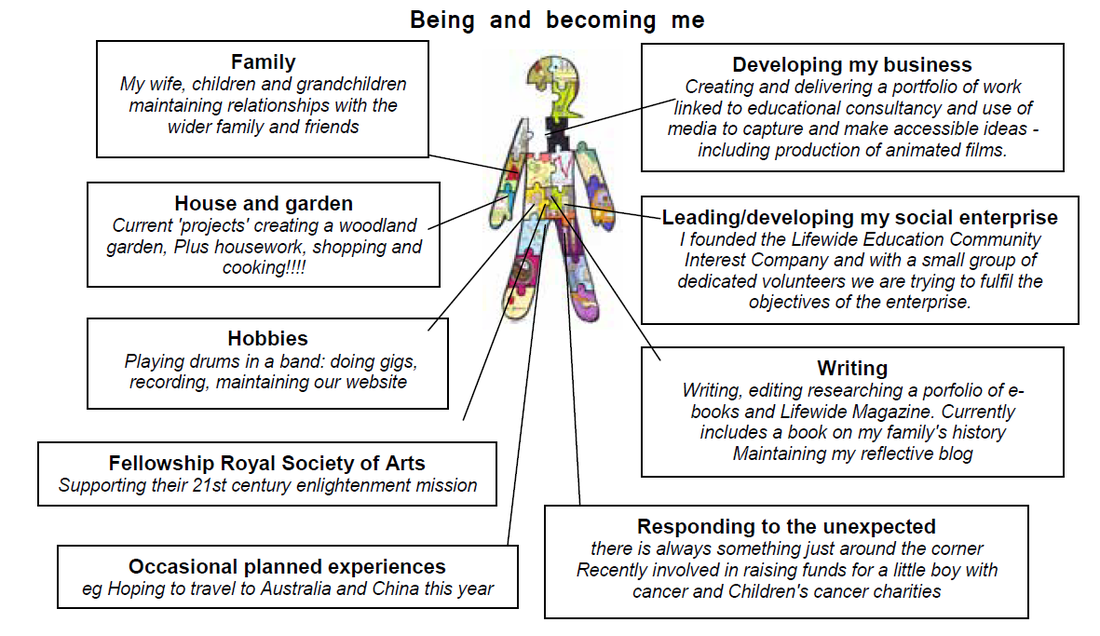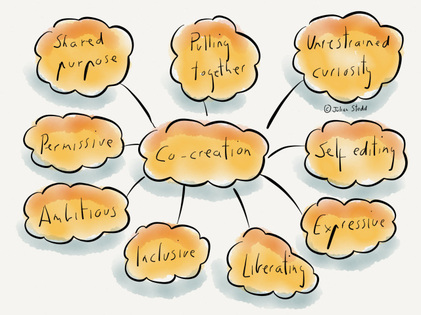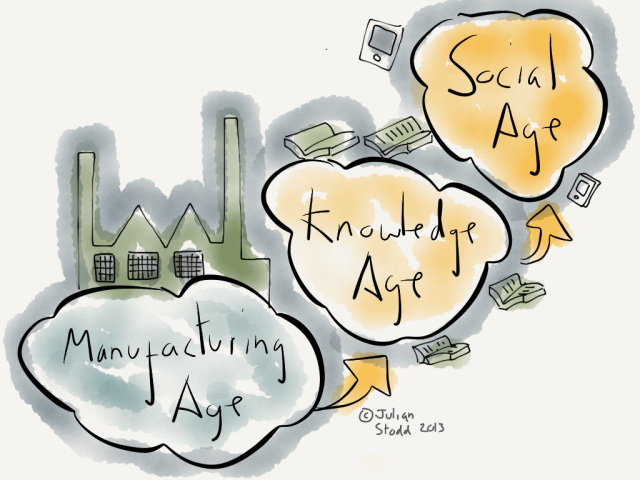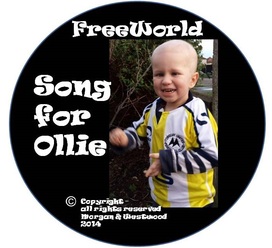
I stopped working for an employer over three years ago. It came as a surprise as I had not planned to retire but the opportunity suddenly presented itself and I realised that economically I could afford to do so and surprised myself by deciding not to seek further employment. That's how it happened - no long term thinking or planning just here's your chance take it or leave it.The fact I did retire never ceases to amaze me given how much I said I enjoyed work and how much I defined myself through my work.
This week I participated in a small group discussion in which we shared our perceptions and experiences of the early stage of retirement. The first question was How do I represent my status when I'm completing a form? I admitted to often being frustrated as I don't like saying I'm retired, I often tick the box saying semi retired even though I don't work for an employer and I receive an occupational pension. So on that score I'm definitely retired. I guess the reason I find it an issue is that I feel a) guilty - I'm too young not to be working for a living b) guilty - because I'm not working for a living when everyone else is around me c) disconcerted - because my concept of retirement is one of older people sitting in front of the telly ( a gross injustice I know especially as I'm quite happy to sit in front of the telly in the evening!) d)) denial - this tag can't apply to me because I'm too busy with self-created work. I also find it hard to accept that I left fulltime employment over 3 years ago when it still feels as if I left 3 months ago! But that is just a measure of how quickly time seems to be flowing at this stage of life. So when these feelings and perspectives are taken together perhaps I am in denial!
The next question was how did I see retirement? I think I have made the transition although perhaps its actually a never ending process of adjustment into the stage when I will, like my 90 yer old father, be sitting by the fire with my slippers on. He has of course earned his rest after a lifetime of slogging and looking after other people.
It feels to me that how I see retirement, just like the rest of life, is constantly evolving. Even in the relatively short period I have been retired, the balance of what I do, the way I choose to use my time, continually changes and it is this balance of what I choose to do that determines how I see and feel about the situation called retirement.
So what does being retired mean to me?
Like the rest of life it's definitely a state oe being and becoming. The optimist in me sees it as a time of relative freedom when I have the choice, unfettered by employment commitments or restrictions to do what I choose to do within my capabilities, life situations, time and economic constraints. I am fortunate in enjoying good health (apart from a wobbly knee) I have a reasonable income and a very supportive family so I am in a privileged position to have considerable choice and opportunity within my life. This freedom to live the life I choose without the constraints of being employed is the most important benefit of retirement. In such circumstances retirement is about privileged opportunity - I feel I'm being paid to do things that I find meaningful and fulfilling, and it gives me a lot of pleasure and satisfies my wellbeing. In this respect retirement is like any other phase of life with its own affordances and opportunities that we have to make the most of within the context of our life.
Another way of looking at retirement is what is different about it compared to when you were working 'what did I miss about not being retired?' The first thing that comes to mind are the social aspects of work, of being with people who are involved with me in working towards something. As a teacher I also miss not being around people where the relationship is one of teacher-learner and when I have taken on roles that are akin to teaching (like some recent work I did in Limerick) I have been reminded of this. I guess attached to this is I miss the sort of work I was involved in, much of my working life has been about self-created work rather than being told what to do so I miss the opportunity to invent and be creative in a work context. With that I suppose comes the fact that I was also the leader and architect of the work so I miss the challenge of leading within a large complex organisation and all that goes with it. And allied to that is the idea of identity and status within my organisation and beyond into the wider community of practitioners in my field. So I guess I miss much more than the 'social aspects of work' but until I make myself spell these out they sit there in the background as a set of unarticulated feelings.
According to (August 2011:353) 'most studies of the meanings people assign to retirement have described categories of meanings people make of retirement. For instance, some retirees conceptualize retirement as a new beginning in which they discover life beyond work; others have difficulty letting go of work in retirement and feel that work has become an irreplaceable lifestyle; for still others, retirement means extensive unhappiness and the feeling of having little to live for' (Kloep and Hendry, 2006). I certainly don't subscribe to the latter view, I do recognise that working for and with purpose (ideas and for others rather than for an employer) is important to me and is something I want to continue. And I also recognise that it is an opportunity to do things that lie outside the world of work.
Everingham et al (2007) suggest retirement can alternately mean the end of the working [for an employer] life, an opportunity to slow down from work and/or build up a more leisurely life, or an opportunity to build up another, better working life over which they have more control. I can see that it means all of these things although my leanings at this stage are towards creating a life with a different blend of work and other non-work activity.
My life spaces map reveals the life I am choosing to lead. It shows spaces and places I inhabit every day, some of the things I do in those spaces and places, the significant relationships I have and value, and the ways in which I try to maintain and develop my physical, emotional and spiritual well-being.
A lifewide perspective
Retirement is sometimes seen in terms of the lifelong dimension of life - you reach a certain age and you stop doing work-related things and start doing non-work related things. But like any other stage of life it has a lifewide dimension containing many spaces and places, real and virtual, that we inhabit day by day and who we are and what we become is the totality of what we do in these different habitats (Jackson 2011). The reality of living is that we interact with these different places, spaces and the situations we inhabit and retirement is a phase of our life where the nature and balance of these habitats changes. So in terms of time and effort, and my purposes the balance of what I do across my life spaces day to day has changed and it is this context that is our life that shapes the meanings we give to our life and to what retirement means to us.
My life spaces map (above) shows how I am trying to realise my own potentialities and it contains the opportunities I have for expressing myself in ways that are valuable and meaningful to me. They are the experiences that give rise to my inner life that ultimately encourages or stops my creativity flourishing. Since I retired I can see that I have created a business that has itself evolved over the three years. The reason I started the business was to make money to invest in a social enterprise Lifewide Education which I knew would not make any money. If I look back over the three years the balance of my lifewide activity has changed. Three years ago I was quite heavily involved in my business as a researcher and did not have any childcare responsibilities but in the last year I have been helping my daughter who has 2 year old twins one or two days a week. It's these shifts in the balance of what we do that gives us the continuously evolving sense of what our life (ie what being retired) means as a husband, father, grandfather, son, brother, founder, director, researcher, writer, drummer, cleaner, gardener, childcarer or whoever else we are.
These are my initial thoughts but I'm going to continue thinking about this.
References
August R A (2011) Women's retirement meanings: context, changes and organisational lessons Gender in Management: An International Journal v26, 5 351-366 available at: http://www.emeraldinsight.com/journals.htm?articleid=1941519&show=html
Jackson, N.J. (ed) (2011a) Learning for a Complex World: A lifewide concept of learning, education and personal development. Authorhouse
Kloep, M. and Hendry L B (2006) Pathways into retirement: entry or exit?' Journal of Occupational and Organisational Psychology v79 569-93
Everingham, C., Warner-Smith, P. and Byles, J. (2007), “Transforming retirement: re-thinking models of retirement to accommodate the experiences of women”, Women’s Studies International Forum, Vol. 30 No. 6, pp. 512-22.








 RSS Feed
RSS Feed